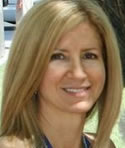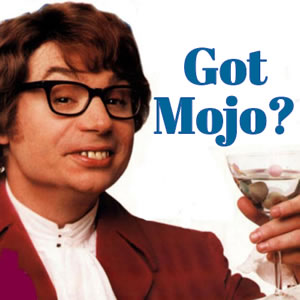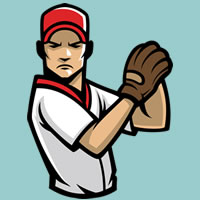It’s been a while since I’ve indulged myself with a good rant.
But this one has been building steam.
It seems like lately I’ve been seeing certain mistakes being made by travel writers and bloggers that are clearly negatively impacting them, but they don’t realize it.
Some make me want to reach through my monitor and grab them by the shoulders, shake them and say “don’t you see what you’re doing??“.
Unfortunately, were it even possible, I doubt that it would go over well. After all, no one wants to be told “you’re getting in your own way“!
But I get numerous emails from writers asking my advice – ranging from “why do I keep getting rejection letters” to “why can’t I get more traffic to my website” and everything in between. When I take a look at their websites, the answer is obvious to me, but not to them.
Sometimes people don’t realize that they just may be their own biggest obstacle to success.
We all develop blinders when it comes to our own behavior, and sometimes we need someone else – who is objective (and that means NOT your mom) – to tell us what we’re doing wrong.
SO here goes…….in no particular order, here at the three biggest obstacles I’ve recently seen a fair number of writers tripping over:
1. General writing obstacles
If you’re just writing or blogging for yourself as a personal project, no one really cares how good or bad your writing is. But if you’re hoping to earn a living as a writer or blogger, you must pay attention to this:
- Problem: Your writing skills need improvement.
I don’t know anyone – myself included – who has such perfect writing skills that they never make even a single spelling error. It happens to all writers, and even editors miss a few things now and then. The occasional blunder can be overlooked. But when your writing is FULL of typos, grammatical errors, and incorrect use of formatting, it’s a real turn-off for readers, and dramatically limits your paying writing opportunities. - Suggestion: Whether your writing skills need a minor tune-up or a major overhaul, consider taking a writing class – not creative writing, but one that teaches the basics – at a local community college or an online learning course. Once you’ve mastered the basics, move on to a travel-writing specific class, like one from our Top 10 Travel Writing Courses page, to learn the finer points of storytelling.
2. Obstacles to getting your articles accepted
Are you getting a lot of rejections? Or worse, are your queries or submissions being ignored? If the problem is clearly not your general writing skills (see problem #1), then consider this:
- Problem: Your article may not be what the publication is looking for.
By way of example, every week I get several submissions of destination articles. Nowhere on our site do we feature destination content, and on our submission page I even specify, in bold letters, that we don’t accept them. And yet, writers still send them to me, hoping for publication. - Suggestion: Be absolutely certain that you’ve read – and fully understand – a publication’s submission guidelines and be sure to READ the publication to get a feel for what types of stories they publish – both conceptually as well as voice and style. Don’t waste your time – or an editor’s time – pitching a story that isn’t a good fit.
3. Social networking obstacles
Are your social networking efforts not reaping the benefits you’d hoped for? Do you seem to attract followers or friends that don’t seem relevant and don’t turn into visitors to your blog?
- Problem: Trying to combine business and personal use of social media accounts.
Here’s another example – I often get “friend” requests on Facebook, but when I go to look at their Facebook page, it says “so and so only shares some of [his/her] profile information with everyone”. Okay, but if I can’t learn anything about you, why exactly should I accept your friend request? If you’re promoting yourself as a writer on Facebook, why would you block anyone from seeing that? The other big problem is that I follow writers to either help promote them or learn from them, and all they post on social media is personal stuff…..don’t confuse business acquaintances such as editors and publishers with actual friends who care about what’s going on with your kids. - Suggestion: Have two separate accounts – one for your personal communications with family and friends, which you can – and should – keep private, and another for business colleagues and acquaintances. Use it to promote your website and writing, and let anyone look at it.
If you don’t recognize yourself in this post, pat yourself on the back and give yourself a hug from me. If you do, keep an open mind and realize that this is for your own good.
~Trisha
Do you spot mistakes that others make? Share your advice!






Great Post Trish and not a rant at all but full of great information! Its not an easy trick for some of us to stumbleupon the information superhighway! At first I wondered what the hell everyone was twittering on about! It’s important to focus yourself and not to be distracted by the many streams available. As a writer, I always ask myself “Who is your reader?” before i pen any story and then like a hunter, I then go looking for my readership. A business wallah would call that direct marketing but I call it hunting down the Muse!
.-= Dianne’s last blog post: ERUPTION DISRUPTION AND OTHER MUSINGS =-.
I love that phrase “hunting down the Muse”!
I think because younger writers have grown up with the idea of having an online presence as a given, they don’t tend to think about having a clear separation of the “professional” you and the “private” you – they’re used to just having it all ‘out there’.
It’s that lack of distinction that keeps them from coming across as professional as they should if succeeding in a business environment is their goal.
Thanks for posting this, Trisha. Very interesting. Altough I am not a travel writer as such, I can see that I make some mistakes, most likely in the spelling/gramatical department.
As it is my blog is still very young, so I asume I will learn new things and pick up tips for improvement in the next months.
.-= Maria Staal’s last blog post: Can a quirky Family Tree make things Clear? =-.
Trust me, we ALL make those kinds of minor mistakes – I found Maralyn Hill’s suggestion (in her guest post “Write What You Mean“) to read your posts out loud before publishing them to really help a lot. Although her intention was to help one find the right rhythm and tone, it also helps me pick up on spelling and grammar errors! :)
Yes, you’re right about that Trisha. I also read my posts out loud before I publish them. Weird how spelling and grammar mistakes then suddenly appear. :)
Good information Trisha. Facebook is my downfall. I had a personal account on facebook before the blog and I get a lot of traffic from my personal facebook page. I have tried starting a separate account for theplanetd, but more people are on the debra corbeil facebook page and follow our blog through there. I have actually thought long and hard about this and decided to try to keep my Debra Corbeil page to a more business level. I still have work to do.
I’ll tell you another way I am getting in my own way, I don’t even send in submissions to publications. I have to change that about myself when I get home this summer. It is time to get my writing out there outside of our site.
.-= Dave and Deb’s last blog post: A Thought From Kathmandu, The Mystique of Travel =-.
That really depends on your goals. While I still believe there are some advantages (mostly in terms of credibility-building) to having your articles in print, I don’t think it’s the holy grail that it used to be, and I don’t believe it’s ‘necessary’.
If your goal is to earn a living from your website, and you can do that by staying focused on your own brand development and growing your site’s audience, getting your name in print may not be worth your time and effort.
That’s not meant as advice to not pursue it – if it’s your dream then you absolutely should – but just don’t do it solely because you feel like it’s something you “have” to do.
Yeah, totally not a rant! Haha. I SHOULD have a separate “professional” account for Facebook, but I prefer just to leave it alone. So I’ll still accept friends via the travel world, I just don’t go around “liking” all the different fan pages and stuff. I prefer to draw some sorta line between my online life and real life.
.-= Candice´s last blog post: Finally, the Passion Board Unveiled =-.
Great points Trisha. I struggle the most with #3. Here’s why:
I am me but I have a million little niches. Though travel writing is probably what I’m best known for, I actually write for several audiences in several publications and in several formats. I’m a ghost blogger in the healthy industry. I’m a copy writer for the wedding industry. And I just got an agent for my first children’s book. Now, I know I’m supposed to build platforms to sell myself and my work, but if I built a platform for every single niche I was in, I’d probably have at least a dozen niches. No joke. I hear you loud and clear about having a personal and a professional account (in fact, I’m thinking of clearing FB of only people I’ve met but I’d struggle with a few close friends I only really know online), but my struggle is drawing the line for all those professional niches. Any thoughts on that?
.-= JoAnna´s last blog post: Food of Huatulco | Oaxaca, Mexico =-.
Actually, yes.
You are not alone. Many of us do the same things – ghost writing, copy writing, and a writing under our own bylines in a variety of niches – sometimes ones that we love, other times just whatever pays the bills. So I can relate to your struggle.
I DO think you can have a FB page that is “you the professional writer” on which you can connect with other writers/editors/agents etc. from across all genres. I DO think you’d still be wise to have a “Fan Page” (which FB is now calling something different) for each niche or project (like a book) that you want to promote with information that is just about those projects.
I just think that when it comes to the things/news of a very “personal” nature (photos of your cousin mashed at your last family reunion), those belong on a private page. Personally I have four Facebook pages – 1 for TWE (which is a Fan page that anyone is free to “Like”), my “professional” profile, for me to connect with all types of writers and authors, and 2 “private” pages – 1 for family & acquaintances, and 1 for my old high-school chums. I carefully monitor my Privacy settings for each to be sure what needs to stay private does – and on the odd occasion that I get a “friend” request to my private pages, I send a message directing that person to the “appropriate” page.
I don’t think everyone needs to go to that much effort, but it’s one way to separate the personal and professional aspects of your life. I know many writers who don’t want to keep them separate, they prefer to have it all out there and like to use words like “transparency”, but I can tell you as a long-time editor, it really does make a difference when I’m trying to gauge the level of professionalism of a writer I want to recommend for opportunities. I’m not judgmental, but I’d be kidding myself if I thought that a recommendation I make doesn’t also reflect on me.
Also, one of the things I love most about WordPress is that you really can have as many sites/blogs as you need to.
SUPER post. Fully agree w/ #1. I go nuts when I see bloggers misusing “it’s/its” or “your/you’re” or “lose/loose.”
Thanks Kara! Those things make me crazy too, and I find them very distracting when I’m reading – I just want to mark up my screen up with a red pencil (Ha!)
I realize that those are words that easily pass any spell-checker….it’s not the end of the world for those who are just casual bloggers, but it’s important for writers to remember that a professional should know the difference.
Not a rant at all – just plain speaking of wide words.
A re-phrasing of something an old lecturer used to emphasise
.-= Europeeno´s last blog post: Mumbai India’s Cosmopolitan City =-.
Thoroughly great advice. I agree with all of it. Spelling and grammatical errors turn me off like nothing else. I hope they can’t be found in my own writing but, like you say, those things can go right through our own eyes without us catching them.
And the FB bit, I do have my profile not only locked but invisible to the world, as I don’t wish to have people from fifth grade as my “friends.” Although, as it so turns out, I now do because I briefly had my high school listed on my info page and people found me. I should have created two accounts and I could have been more open on FB. But oh, well.